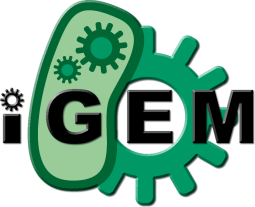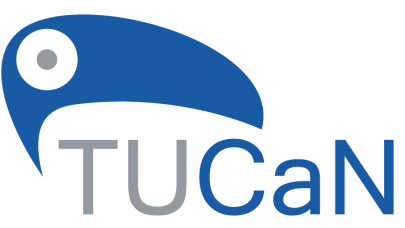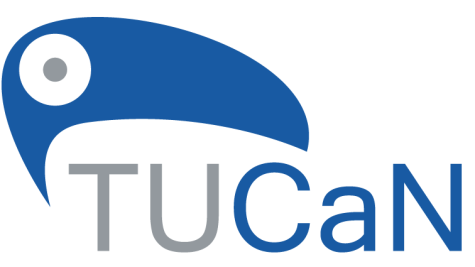Applied computational modeling and analysis – SEMINAR
Course No: 18-kp-3020-se
Outline:
The module provides an introduction to modeling and analysis approaches relevant to synthetic biology. It builds on the mathematical basis provided in the module “mathematical foundations of modeling and analysis”. Apart from short introductory lectures, practical programming of respective algorithms will be the main modality to learn the subject. The course covers purely data-driven methods from biostatistics and machine learning but also first-principle modeling approaches from biophysics and biochemistry. Concrete scientific problem statements will used to learn about the modeling and analysis algorithms.
- Introduction to scientific programming using Julia
- Introduction to biostatistics, bioinformatics and machine learning
- Deterministic and stochastic approaches for modeling reaction networks
- Thermodynamic analysis of reactions networks
- Principles of molecular dynamics, structure prediction
- Statistical methods for structure prediction
- Numerical solution and simulation methods
Applied computational modeling and analysis – LECTURE
Course No: 18-kp-3020-vl
Outline:
The module provides an introduction to modeling and analysis approaches relevant to synthetic biology. It builds on the mathematical basis provided in the module “mathematical foundations of modeling and analysis”. Apart from short introductory lectures, practical programming of respective algorithms will be the main modality to learn the subject. The course covers purely data-driven methods from biostatistics and machine learning but also first-principle modeling approaches from biophysics and biochemistry. Concrete scientific problem statements will used to learn about the modeling and analysis algorithms.
- Introduction to scientific programming using Julia
- Introduction to biostatistics, bioinformatics and machine learning
- Deterministic and stochastic approaches for modeling reaction networks
- Thermodynamic analysis of reactions networks
- Principles of molecular dynamics, structure prediction
- Statistical methods for structure prediction
- Numerical solution and simulation methods
PRELIMINARY of Laboratory of Biomedical Engineering
Course No: 18-kp-1050-tt
Outline: This module addresses the different branches of biomedical engineering. Contents of lab experiments cover current topics of biomedical engineering like medical robotics, measuring and sensor technology, biomechanics, radiotherapy, imaging techniques, biosignal-monitoring, gerontology or Lab-on-a-Chip.
Important note: You have to be present in this preliminary session as during this event the groups will be determined and the dates of the experiments will be announced. Please note that each of the five experiments will take approximately 3 to 4 hours.
Laboratory of Biomedical Engineering
Course No: 18-kp-1050-pr
Outline: This module addresses the different branches of biomedical engineering. Contents of lab experiments cover current topics of biomedical engineering like medical robotics, measuring and sensor technology, biomechanics, radiotherapy, imaging techniques, biosignal-monitoring, gerontology or Lab-on-a-Chip.
Important Note: You have to be present in the preliminary session as during this event the groups will be determined and the dates of the experiments will be announced. Please note that each of the five experiments will take approximately 3 to 4 hours.
Information Theory I – Lecture
Course No: 18-kp-1010-vl
Contents: This lecture course introduces the fundamentals of information theory and network information theory.
Outline: Information, uncertainty, entropy, mutual information, capacity, differential entropy, Gaussian channels, basics of source and channel coding, linear block codes, Shannon’s source coding theorem, Shannon's channel coding theorem, capacity of Gaussian channels, capacity of bandlimited channels, Shannon's bound, bandwidth efficiency, capacity of multiple parallel channels and waterfilling, Gaussian vector channels, multiple-access and broadcast channels.
Detailed Lecture dates: Please look at TUCAN
Information Theory I – Exercise
Course No: 18-kp-1010-ue
Contents: This exercise course takes place 6 times and introduces the fundamentals of information theory and network information theory.
Genetic Engineering – Lecture
Course No: 10-13-0015-vl
Teachers: Prof. Dr. rer. nat. Adam Bertl; Dr. rer. nat. Arnulf Kletzin; Prof. Dr. techn. Heinz Köppl; Prof. Dr. rer. nat. Alexander Löwer; Prof. Dr. Ulrike Nuber; Prof. Dr. Jörg Simon; Prof. Dr. Viktor Stein; Prof. Dr. rer. nat. Beatrix Süß
Genetic Engineering – Seminar
Course No: 10-03-0015-se
Bioinformatics I
Course No: 18-kp-1020-vl
• Biomolecular foundations of high-throughput measurement techniques (Microarrays, RNA-Seq, genome sequencing, proteinarrays, mass-spectrometry, flow-cytometry, mass-cytometry, genomics, proteomics, metabolomics)
• Foundations of statistics and machine learning (decision theory, regression, classification and clustering)
• Exact substring search, dynamic programming, algorithms for sequence comparison (PAM, BLAST, BLAST2, etc), alignment of multiple sequences (ClustalW, DAlign, etc)
• Important databases in bioinformatics and their use in medicine and biology (GenBank, Gene Expression Omnibus, Rfam, UniProt, Pfam, KEGG, BRENDA, Pathway Commons)
• Analysis of interaction networks (modularity, graph partitioning, spanning trees, differential network analysis, network motifs, STRING database, PathBLAST)
• Introduction to structural biology, structure prediction for RNA and proteins, Protein Data Bank (PDB)
Bioinformatics II
Course No: 18-kp-2120-vl
This module is for students finished Bioinformatics 1.
It takes place only in Summer Semesters.
Proseminar ETiT
Course No: 18-kp-1000-ps Proseminar ETiT
You can register for a proseminar at BCS at any time.
If you are interested in doing a proseminar under supervision of BCS, please, do not hesitate to contact any member of BCS and ask for details.
Vocational Oriented Research Internship
Course No: 10-01-0040-pr
You can register for an internship at BCS at any time. We are always looking for outstanding individuals as internships for a few months at our Lab.
If you are interested in doing an internship under supervision of BCS, please, do not hesitate to contact any member of BCS and ask for details.
Computational Modelling for the IGEM Competition
Course No: 18-kp-2100-se
The International Genetically Engineered Machine (IGEM) competition is a yearly international student competition in the domain of synthetic biology, initiated and hosted by the Massachusetts Institute of Technology (MIT), USA since 2004. In the past years teams from TU Darmstadt participated and were very successfully in the competition. This seminar provides training for students and prospective IGEM team members in the domain of computational modeling of biomolecular circuits. The seminar aims at computationally inclined students from all background, but in particular from electrical engineering, computer science, physics and mathematics. Seminar participants that are interested to become IGEM team members could later team up with biologists and biochemists for the 2017 IGEM project of TU Darmstadt and be responsible for the computational modeling part of the project.
The seminar will cover basic modeling approaches but will focus on discussing and presenting recent high-impact synthetic biology research results and past IGEM projects in the domain of computational modeling.
Project Seminar Communication and Sensor Systems
Course No: 18-kp-1041-pj
Investigating and solving specific problems concerning communication and sensor systems (Problems concerning communications engineering, microwave technology, signal processing, sensor networks etc. are possible, topics will be defined out of the recent research topics of the involved labs), working on a a given task by one’s own, organizing and structuring of a seminar task, searching and analyzing of scientific reference publications for a given task, summarizing achieved results and conclusions by means of a written report, presenting achieved results and conclusions and defending them in an oral discussion including audience.
Addition to Project Seminar Communication and Sensor Systems
Course No: 18-kp-1042-pj
This module can be used as replacement for the “project week”.
The description of this module is similar to 18-kp-1041-pj Project Seminar Communication and Sensor Systems.




